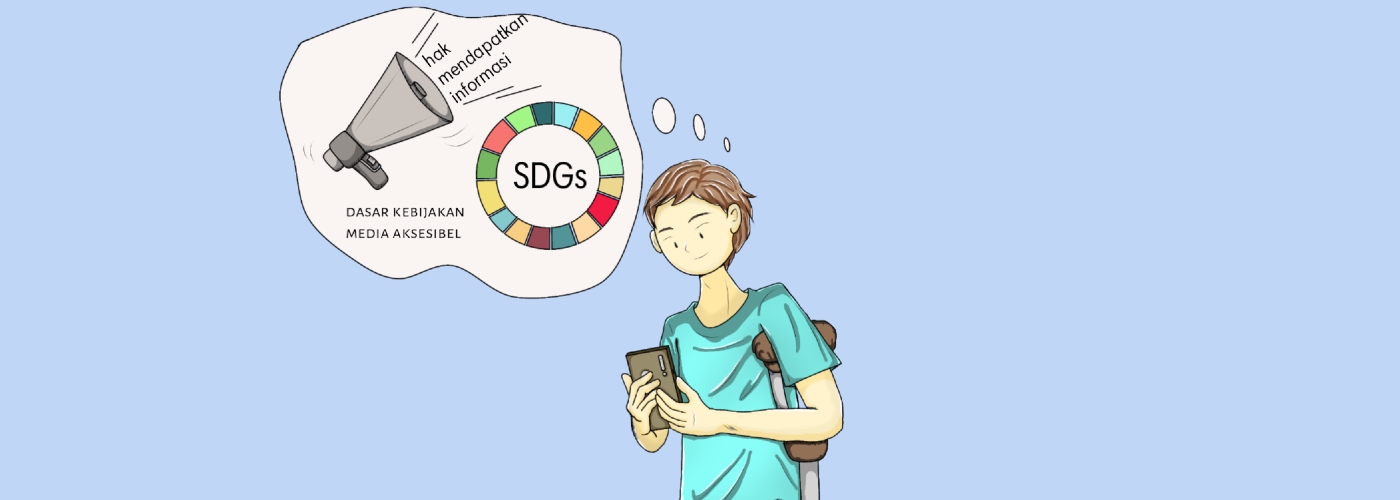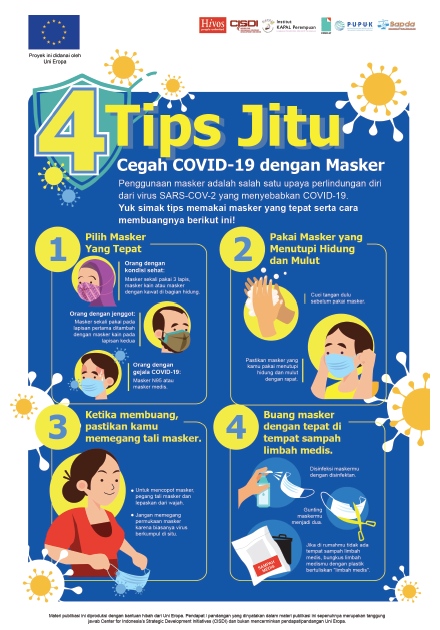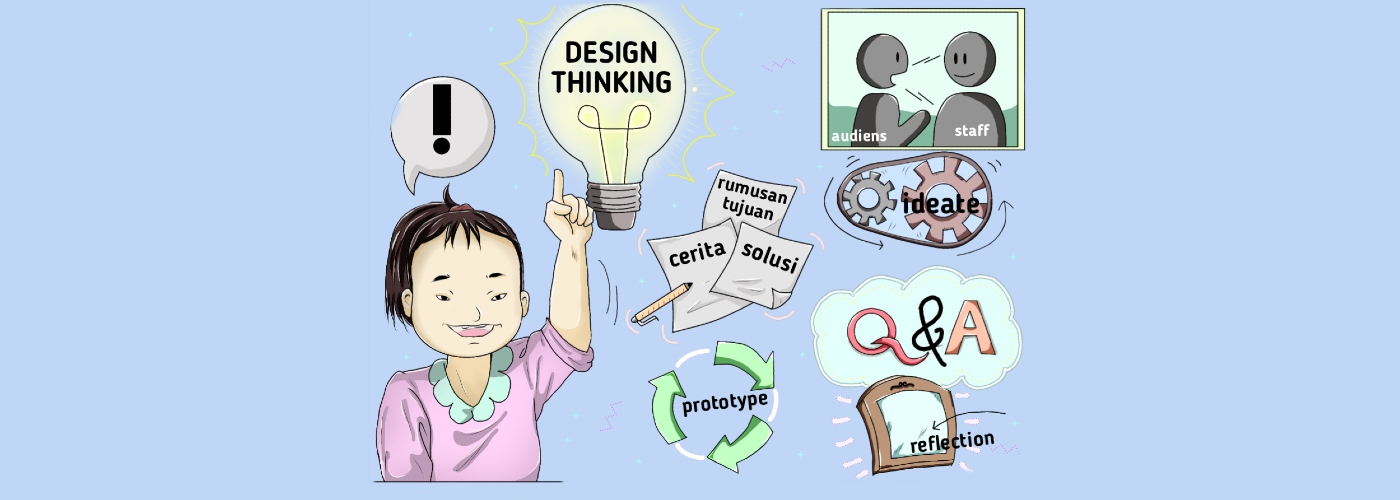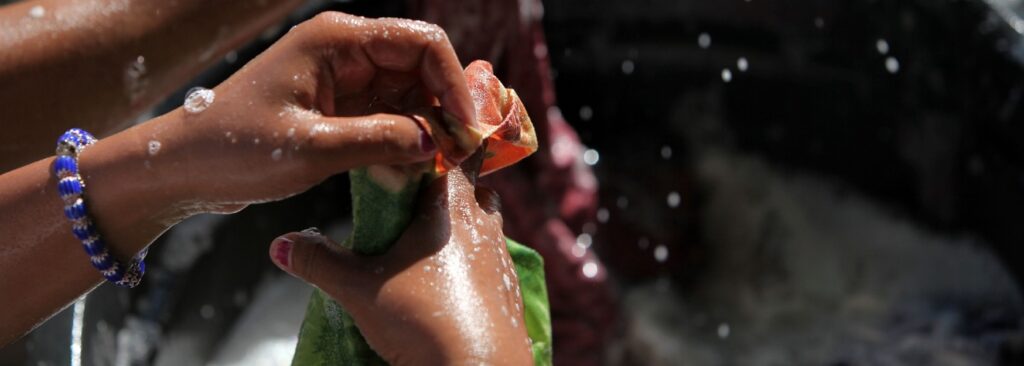The Advocacy Center for Disability, Women and Children Foundation (SAPDA) today launched a guidebook aimed at addressing the needs of people with disabilities in accessing information. The “Accessible Media Production Guide” will help the media, government, businesses and other content creators improve the way they get their information across to people with hearing, visual and intellectual impairment.
Published as part of the ACTION Project (Active Citizens Building Solidarity and Resilience in Response to Covid-19), the guidebook contains steps to produce accessible media such as videos, infographics, posters, documents and presentations. The guidebook also describes techniques for distributing accessible media materials through social media, messaging apps and websites.
“The right information is very important in risk communication. This type of information must be available to everyone, without anyone being left behind.”
Funded by the European Union, the ACTION project is coordinated by Hivos and implemented jointly with SAPDA, Alternative Education Circle for Women (KAPAL Perempuan), Center for Indonesia’s Strategic Development Initiatives (CISDI), Association for Advancement of Small Business (PUPUK), and Perkumpulan Pamflet Generasi (Pamflet) in five provinces in Indonesia.
Inclusive launch
The launch of the guidebook was accompanied by a series of virtual discussions aimed at raising awareness about the importance of making information more accessible to all, including people with disabilities. The purpose of the discussions was also to obtain inputs on increasing accessibility of various other media types and outlets. Participating in the discussions were representatives of the Indonesian Ministry of Women Empowerment and Child Protection, Covid-19 National and Regional Task Forces, Yogyakarta Municipality, Regional Development Agency (Bappeda), organizations for people with disabilities, village authorities, media outlets and members of the public interested in the issue of accessible media.
During the event, SAPDA and CISDI also introduced accessible media campaign products – videos and infographics – on Covid-19.
Meeting the information needs of persons with disabilities
Director of SAPDA Nurul Saadah said “SAPDA has compiled a guide for the production of accessible media to respond to the special needs of people with disabilities to access information. SAPDA wants to ensure that all available media can meet the information needs of persons with disabilities with all kinds of media forms and delivery methods.”
Nurul hopes that the guidelines and examples of accessible media introduced during the event can be a reference for media producers to reach an audience of people with disabilities. “So far, media activists and producers have faced challenges related to how to convey information through the right media to people with disabilities. Their limited knowledge and skills make it difficult for them to adapt media to the special needs of people with various disabilities. Media activists and producers also have less awareness about the existence of community members with disabilities,” she added.
Access to information crucial in preventing the spread of COVID-19
ACTION-CISDI Program Manager Citra Kusuma said “The right information is very important in risk communication. This type of information must be available to everyone, without anyone being left behind. With accessible media for all people, including vulnerable groups and people with disabilities, they will know what to do to protect themselves and their families. Everyone must take part in preventing the spread of Covid-19.”
Information has to reach all communities
Hivos Executive Director Edwin Huizing added, “Hivos believes that people and institutions should respect all people’s rights, including those of marginalized, discriminated and excluded groups. Raising awareness among media producers, civil society organizations and other institutions of the importance of inclusive and accessible information is crucial, particularly during this pandemic when information has to reach all communities. That makes the work of the ACTION project very relevant. Together with the project’s partners we can make sure people with disabilities have access to health facilities and economic and social recovery efforts.”
Accessible Media Production Guidelines and examples of accessible media campaigns can be accessed here.
About the European Union
The European Union (EU) is an economic and political union of 27 Member States. Together, the EU has built a zone of stability, democracy and sustainable development whilst maintaining cultural diversity, tolerance and individual freedoms. In 2012, the EU was awarded the Nobel Peace Prize for advancing the goals of peace, reconciliation, democracy and human rights in Europe. The EU is the world’s largest trading bloc, and the world’s largest source and destination of foreign direct investment. Collectively, the EU and its Member States are the largest donor of Official Development Assistance (ODA), providing more than half of ODA globally.
To support partner countries in the fight against the Covid-19 pandemic and its consequences, the EU has launched the “Team Europe” approach. The objective of the “Team Europe” approach is to combine resources from the EU, its Member States and European financial institutions. “Team Europe” has mobilized around €200 million in grants and loans to support Indonesia. €6 million or IDR 108.5 billion in grants are dedicated to support civil society organizations to address the health and socioeconomic impact of the Covid-19 crisis in Indonesia.
About the ACTION project
The ACTION project aims at increasing the participation of civil society organizations in preventing and mitigating the risks caused by the Covid-19 crisis and ensuring that vulnerable and marginalized groups in Indonesia have equal access to social and economic recovery programs. This two-year project is implemented in 15 sub-districts and 40 villages in DKI Jakarta, West Java, Yogyakarta, West Nusa Tenggara, and South Sulawesi in two phases. The first phase will focus on the initial response to the pandemic, while the second phase will help to mitigate the social and economic impacts. Women, people with disabilities (PWD), elderly, youth, SME entrepreneurs, and CSOs will directly benefit from the project.
The ACTION project is coordinated by Hivos and implemented jointly with:
Center for Indonesia’s Strategic Development Initiatives (CISDI)
CISDI is a civil society organization that supports the realization of the Sustainable Development Goals (SDGs) through health development and involvement of youth in health development. CISDI conducts a study of issues based on experience in managing primary healthcare reinforcement programs in suburban areas as well as outermost, frontier, and the least developed areas, research and analysis of health policies, social change campaigns, and its involvement in health diplomacy at the national and international levels.
Alternative Education Circle for Women (KAPAL Perempuan)
The establishment of KAPAL Perempuan is to build women and social movement that are capable of realizing social justice, gender equality and justice as well as peace in the public and private sphere. KAPAL focuses on strengthening women’s leadership through feminist critical education, organizing and evidence-based advocacy, especially for women at the grassroots.
Pamflet
Pamflet is a human rights based organization founded and organized by young people. We are focusing on youth movement, as well as encouraging new initiatives for change in social and cultural areas, especially related to human rights issues, politics and democracy, and gender and sexual diversity. We support the youth movement in Indonesia and manage the knowledge on youth through developing centers of information, documentation and organizing capacity building for young people.
The Association for Advancement of Small Business (PUPUK)
PUPUK was established from initiation program of Small Industries Advancement (PIK) – West Java Chamber of Commerce (KADIN Jawa Barat), and the initiatives of three professional groups of Entrepreneurs, Academics, and Economic Activist began in 1979 in cooperation with a German institution, Friedrich-Naumann-Stiftung (FNSt). In 1988 declared independently with the goals to expanding the region scope and more comprehensive achievements and institutionalized into PUPUK, and was legalized as an Association. PUPUK provides technical assistance to empower small businesses and strengthen the ecosystem to stimulate new strong entrepreneurs in facing economic competition.
Advocacy Center for Disability, Women and Children (SAPDA)
SAPDA Foundation, stands for Advocacy Center for Disability, Women and Children, based in Yogyakarta, and established in July, 2005, is a non-governmental organization (NGO) with a vision of “the struggle to bring about change, justice, freedom, welfare & equality to fulfil and protect the rights of women, persons with disabilities and children in an inclusive society on the basis of equal human rights.
For more information, please contact:
Nurul Saadah Andriani | SAPDA Director | director@sapda.org | 0856.291.4654
Citra Widya Kusuma | ACTION Project Manager, CISDI | action@cisdi.org
Yesua YDK Pellokila | ACTION Project Manager, Hivos | ypellokila@hivos.org




